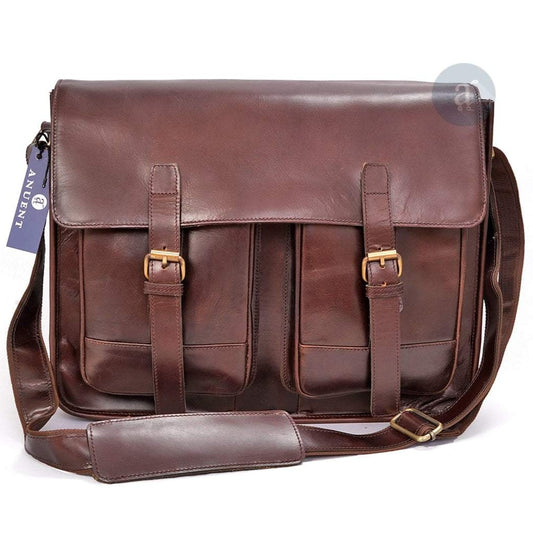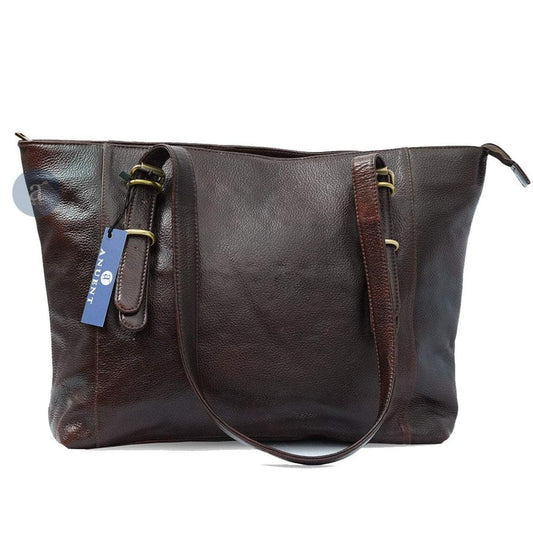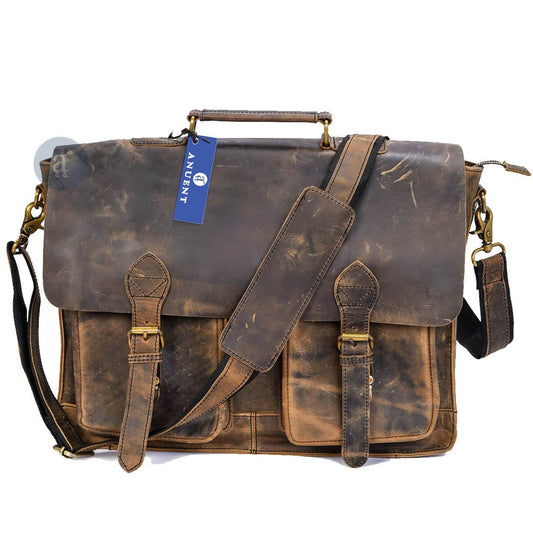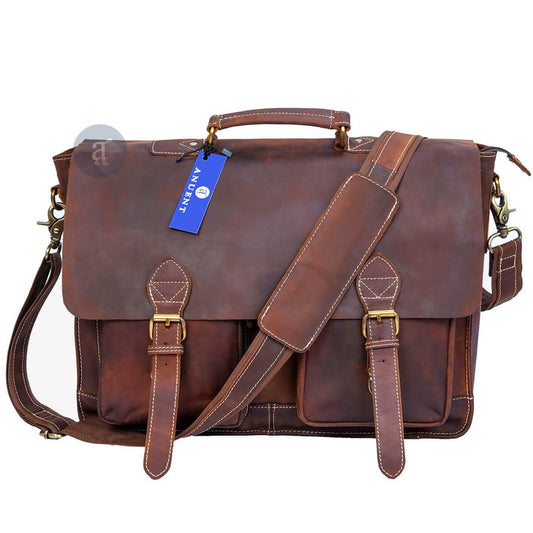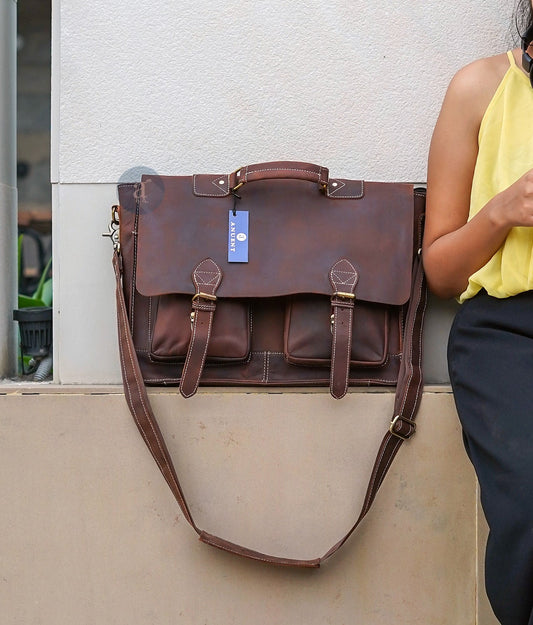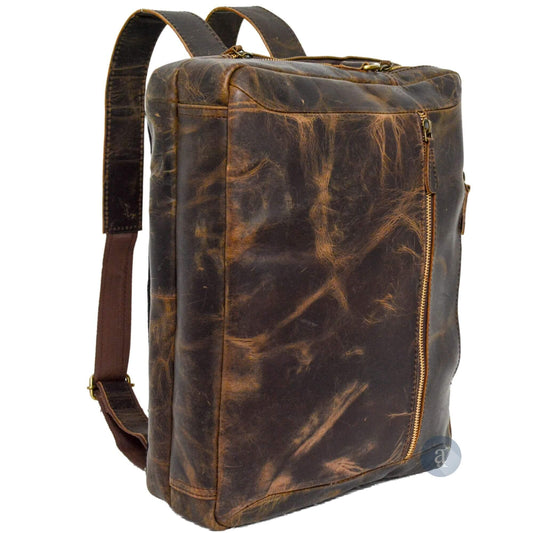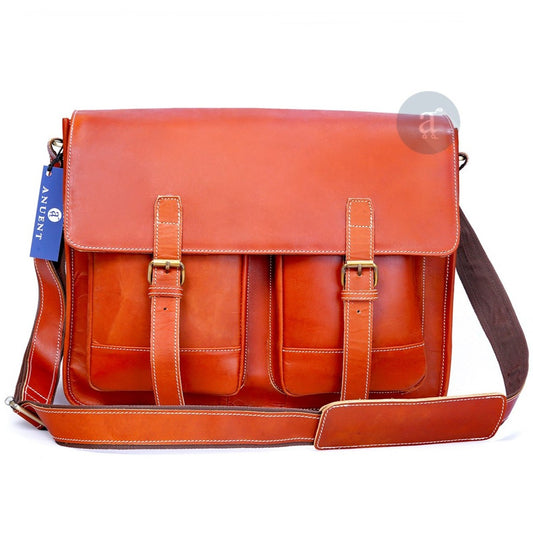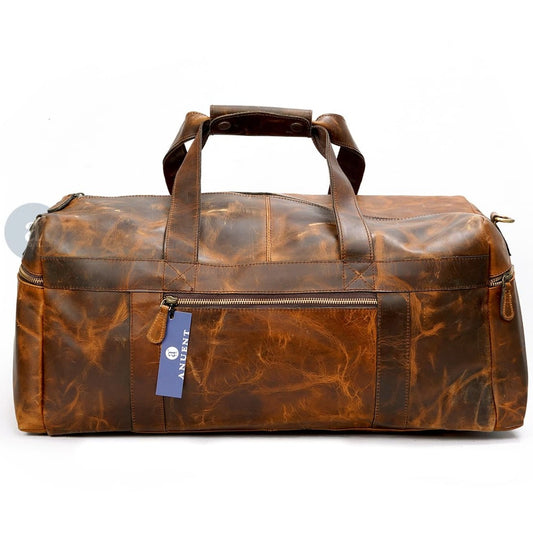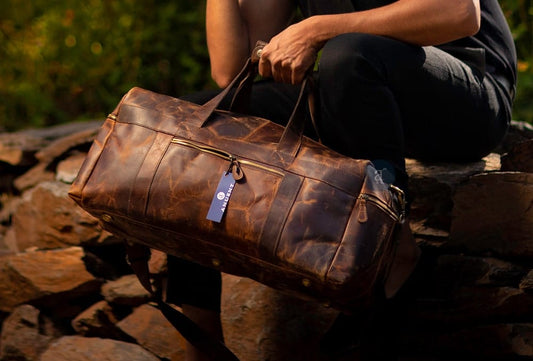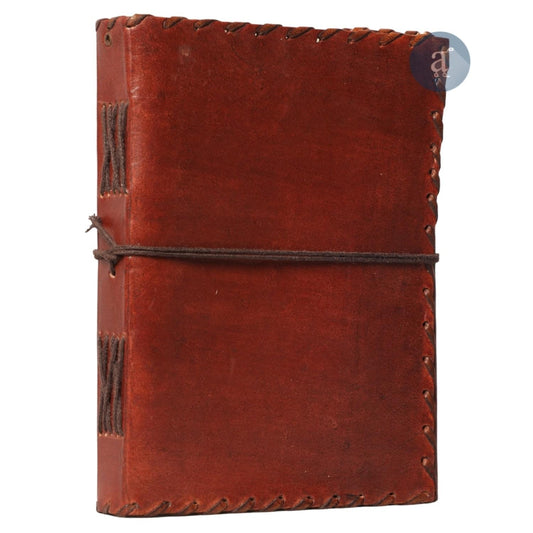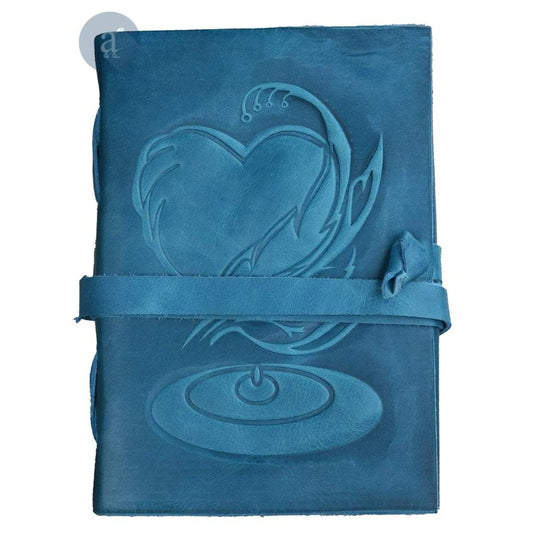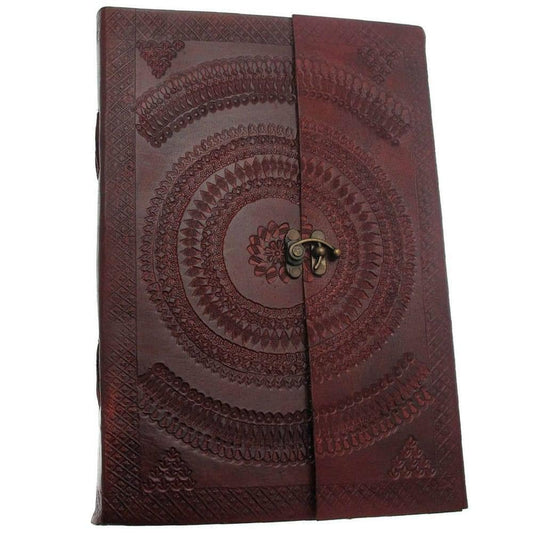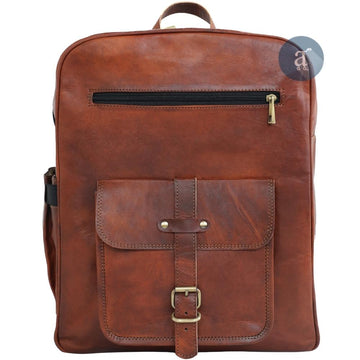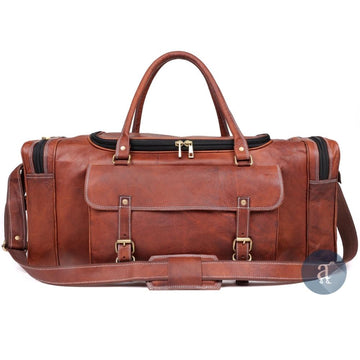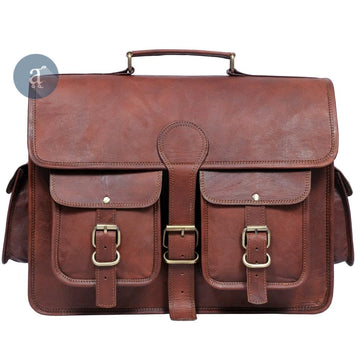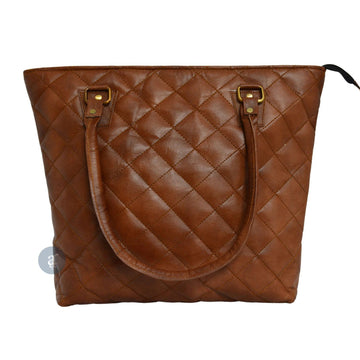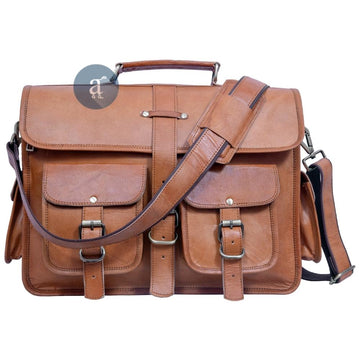With the growing awareness in an environmentally conscious society regarding all aspects of life, consumers are shifting towards exploring sustainable alternatives - from food and transportation to clothing and accessories.
One of these eco-friendly choices is real leather backpacks, which serve as a strong and durable alternative to synthetic bags.
Unlike mass-produced synthetic options, leather backpacks offer superior quality for a more sustainable lifestyle.
However, just how exactly are leather backpacks a greener option?
Let's go deeper into what this means environmentally and why making this investment can pay off.
Environmental impact of synthetic bags
Before we get into the sustainability of leather backpacks, it's important to know why synthetic bags are a problem.
Most synthetic bags are made from materials such as polyester, nylon, and PVC, which are derived from petroleum-based products.
These materials contribute to pollution in several ways:
- High carbon footprint: The production of synthetic materials requires a significant amount of fossil fuels, leading to high greenhouse gas emissions.
- Non-biodegradable waste: Synthetic bags take hundreds of years to decompose, overflow landfills, and degrade the environment.
- Microplastic pollution: When synthetic materials break down, they discharge a high number of microplastics into the environment, thereby contaminating water sources and marine life.
Also, check out this article on the difference between genuine vs. faux leather backpacks
Reason why leather backpacks are a sustainable option
1. Long-lasting and durable
This makes one of the biggest reasons that make leather backpacks sustainable durable.
Synthetic bags typically last a couple of years only, but very good-quality leather backpacks like The Explorer from Anuent could last a very long time-if taken proper care of it-last for several decades.
Therefore, the necessity for frequent replacements minimizes the final waste accumulation.
2. Biodegradable
Unlike synthetic materials, real leather is biodegradable.
Although it takes longer to decompose compared to plant-based materials, leather will eventually break down without releasing harmful microplastics into the environment.
3. Ethical and eco-friendly tanning processes
Modern tanning processes, such as vegetable tanning, utilize extracts from tree bark and other organic materials.
These are considered safer and more eco-friendly alternatives than traditional chrome tanning, which can be toxic because of the chemicals involved.
4. Reduced plastic use
By opting for a leather backpack, consumers actively reduce their dependence on plastic-based products.
This small change, when adopted widely, can significantly lower plastic pollution and decrease demand for petroleum-based materials.
Also, read What to look for in a high-quality leather backpack.
How to ensure ethical leather sourcing
While leather is a more sustainable alternative compared to synthetic materials, it's important to ensure that your leather backpack is sourced ethically.
Here's what to look for:
- Opt for vegetable-tanned leather: This is a more eco-friendly process that also reduces chemical waste.
- Go for bags from companies with sustainable practices: Some companies are dedicated to responsible leather sourcing and humane treatment of animals.
- Consider recycled leather: Some companies use recycled leather or reuse old leather materials to produce new products. This further minimizes environmental impact.
Also, read How to choose the right leather backpack for your lifestyle.
Leather vs. synthetic bags: A sustainability comparison
| Feature | Leather Backpacks | Synthetic Bags |
|---|---|---|
| Durability | Can last decades | Wears out in a few years |
| Biodegradability | Biodegradable | Non-biodegradable |
| Carbon Footprint | Lower over time | High due to petroleum use |
| Plastic Waste | No plastic pollution | Contributes to microplastic pollution |
| Eco-Friendly Processing | Available (vegetable tanning) | Chemical-heavy production |
Making an informed choice
If you are looking for a stylish, durable, and sustainable bag, then a leather backpack is a great investment.
Although the initial cost may be higher than a synthetic bag, the longevity, and minimal environmental impact make it a more responsible choice in the long run.
Moreover, by choosing ethically sourced and eco-friendly leather, you further support sustainable practices in the fashion industry.
Conclusion
Leather backpacks are a very practical and eco-friendly alternative to synthetic bags.
Long-lasting, biodegradable, and reducing plastic pollution, leather backpacks are a more sustainable option.
With consumers embracing eco-friendly options and investing in quality, ethically sourced leather backpacks can be part of the solution to reduce waste and contribute to sustainability.







